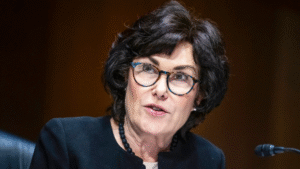In a stunning reversal, former U.S. President Donald Trump’s recent condemnation of Vladimir Putin has ignited a firestorm of criticism from Russian state media and Kremlin-aligned bots. This unexpected shift has not only strained Trump’s previously amicable ties with Moscow but also intensified the ongoing geopolitical tensions surrounding the Ukraine conflict.
Trump’s Unexpected Rebuke of Putin
Donald Trump, known for his historically conciliatory stance toward Russia, took a surprising turn by labeling President Vladimir Putin as “crazy” in a recent Truth Social post. This comment followed a devastating Russian missile and drone attack on Ukraine that resulted in at least 12 fatalities. Trump’s abrupt criticism marks a significant departure from his earlier rhetoric, where he often downplayed Russian aggression and withdrew threats of sanctions.
The former president’s remarks have not gone unnoticed. Russian state media outlets, including RT, responded with mockery, portraying Trump’s comments as emotional outbursts rather than serious political statements. This reaction underscores a notable shift in the Kremlin’s portrayal of Trump, who was previously depicted in a favorable light by Russian media.
Kremlin’s Strategic Media Offensive
The Kremlin’s media apparatus has swiftly mobilized to counter Trump’s unexpected criticism. Russian propagandists have expressed outrage, particularly over Trump’s assertion that Russia helped the U.S. win World War II—a statement they deem historically inaccurate and offensive.
Former Russian President Dmitry Medvedev escalated the rhetoric by warning of the potential for World War III if tensions continue to rise. This stark warning serves as a reminder of the fragile state of international relations and the risks associated with deteriorating diplomatic dialogue amid ongoing conflict in Ukraine.
The Role of Kremlin Bots in Shaping Public Perception
Kremlin-aligned bots have played a significant role in amplifying pro-Russian narratives and discrediting critics. These bots, often masquerading as legitimate users, have been instrumental in spreading misinformation and sowing discord on social media platforms. Notably, during the 2016 U.S. presidential election, Russian bots retweeted Trump’s content nearly 470,000 times, significantly more than any other candidate.
Recent studies have revealed that these bots have evolved into “sleeper agents,” remaining dormant for years before activating to influence political discourse. Their activities have been particularly pronounced during critical moments, such as elections and international crises, highlighting the sophisticated nature of Russia’s digital propaganda efforts.
U.S. Political Landscape and International Repercussions
Trump’s sudden shift in tone has reverberated through the U.S. political landscape. Senate Republicans have seized the opportunity to advocate for tougher sanctions on Russia, urging decisive action in response to the escalating conflict in Ukraine.
Internationally, Ukrainian President Volodymyr Zelensky has called for direct negotiations with both Trump and Putin, suggesting various formats for peace talks. This move underscores the urgency of diplomatic engagement to resolve the ongoing crisis and highlights the complex interplay of international actors in the pursuit of peace.
Historical Context: Russia’s Digital Influence Campaigns
Russia’s use of digital platforms to influence political outcomes is not a new phenomenon. The Internet Research Agency, a Kremlin-linked organization, has been at the forefront of orchestrating disinformation campaigns aimed at manipulating public opinion. These efforts have included the creation of fake social media accounts, the dissemination of misleading content, and the exploitation of existing societal divisions.
The “firehose of falsehood” strategy, characterized by the rapid and continuous spread of disinformation across multiple channels, has been a hallmark of Russia’s approach to information warfare. This tactic overwhelms audiences with a barrage of conflicting messages, making it difficult to discern truth from falsehood and undermining trust in traditional media sources.
Conclusion: Navigating the Complexities of Modern Geopolitics
Trump’s unexpected condemnation of Putin has not only strained his relationship with the Kremlin but also highlighted the intricate dynamics of modern geopolitics. The interplay between political rhetoric, state-sponsored media, and digital propaganda underscores the challenges faced by democracies in maintaining the integrity of public discourse.
As the international community grapples with these complexities, it becomes increasingly important to remain vigilant against misinformation and to support credible sources of information. Understanding the mechanisms of influence and the motivations behind them is crucial in fostering informed citizenry and resilient democratic institutions.
Subscribe to trusted news sites like USnewsSphere.com for continuous updates.
[USnewsSphere.com / td.]





